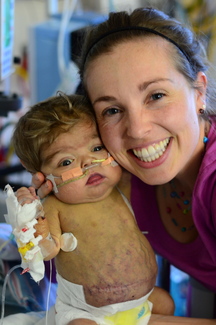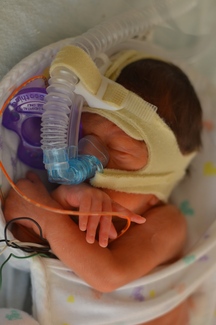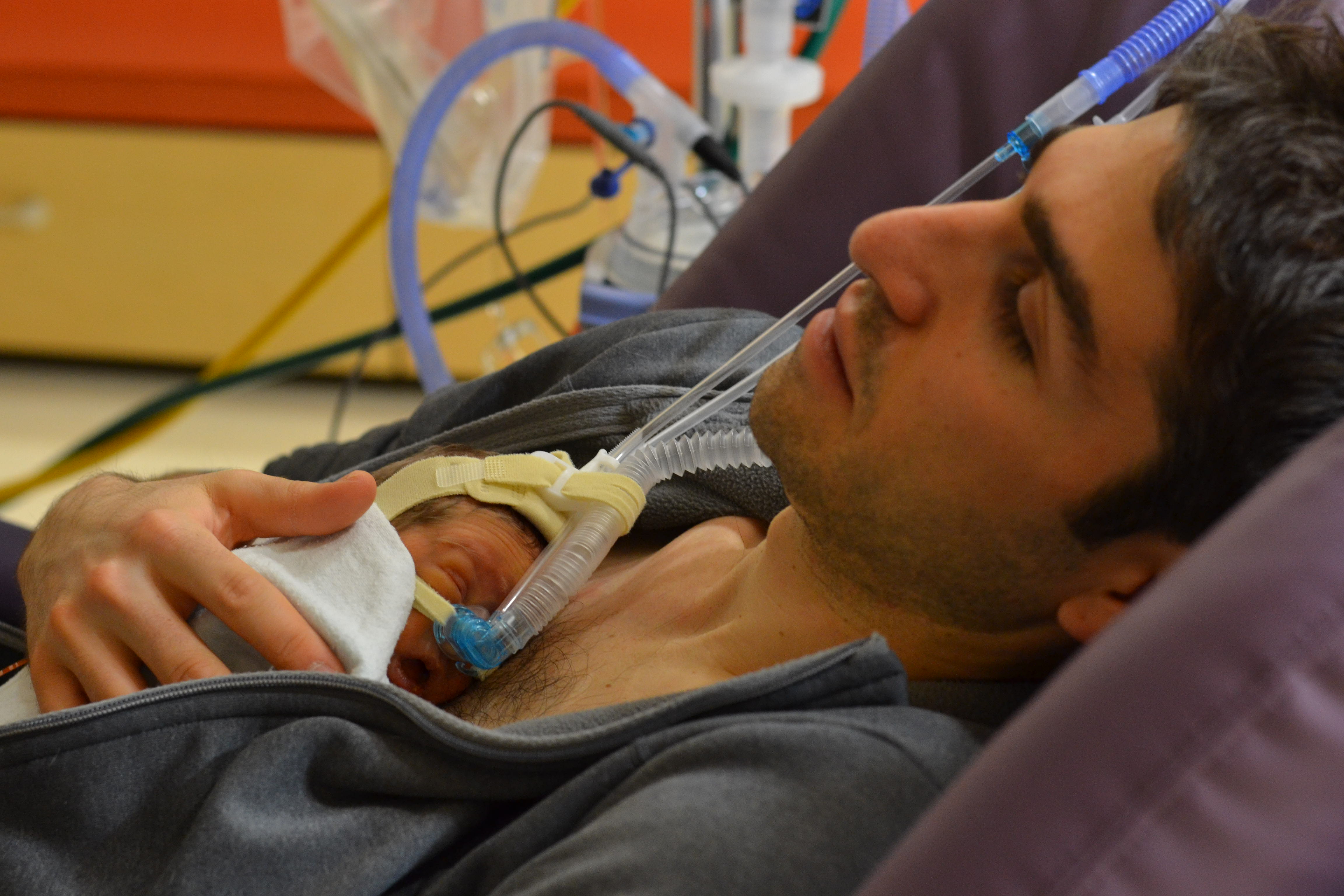
No one plans to become a parent of a fragile infant. When a baby is born prematurely, most parents are woefully unprepared for the journey through the Neonatal Intensive Care Unit (NICU). Infants in the NICU are often so fragile that they cannot be held, fed, dressed or bathed. Parents often feel disempowered and helpless.
Throughout my pregnancy, I took excellent care of myself and did everything right, but suddenly found myself in preterm labor. When my twin boys, Micah and Zachary, were born three months prematurely, I didn't know how to be their mommy. We were often physically separated from each other. During my time with them, I was terrified of hurting their tiny bodies. I didn't understand the NICU language. I didn't understand the wires, machines, alarms or numbers. I had to stand back and let others take care of my newborn twins. I could not protect them from the pokes, prods and emotional distress they endured. Needless to say, I was a mess.
Zachary was hospitalized for 91 days. Micah developed necrotizing enterocolitis (NEC), a life-threatening intestinal disease, and remained hospitalized for 299 days. By the time both of my twins were at home, I knew things that I only wish I had known from day one in the NICU.
1. You are an integral part of your preemie's care team. Your thoughts, feelings and observations are critically important. Speak up, respectfully. Ask questions. Voice your concerns. Share what is important to you. If you feel strongly that something is in the best interest of your baby, insist on it being that way.
2. Preemies need fresh breast milk. Preemies should receive a 100% breast milk diet. Fresh breast milk can be life-saving for fragile infants. Mothers should begin pumping as soon as possible. To establish and sustain her milk supply, every mother of a preemie needs support from her partner, family, lactation consultant, and baby's care team. When mothers' own milk is unavailable for fragile infants, pasteurized donor breast milk is the next best option. Formula increases a preemie's risk of developing NEC.
- Abnormally distended belly
- Temperature instability (body temp is too high or too low)
- Blood in stool
- Frequent dry diapers
- Frequent or large amounts of vomit
- Constipation
- Lethargic or not as responsive
- Difficulty or change in breathing
4. Insist on having primary caregivers. A team of primary nurses who know your baby and family will help to ensure better communication and continuity of care, which increases patient safety. Take time to build a respectful, trusting relationship with your baby's primary caregivers.
5. Learn how to care for your preemie. Ask your baby's nurse to teach you how to provide basic care for your preemie. Provide kangaroo care as often as you can. Preemies need to feel their parents' touch. When you cannot kangaroo your baby, hold hands and read to him/her.
6. Pay attention to details. Keep a journal documenting your baby's care routines, behavior, as well as his/her setbacks and accomplishments. Capture your thoughts and questions. Take notes during rounds. Do not assume the care team knows everything and will do everything right. They are human and make mistakes. If you don't notice the mistakes, it's possible that no one else will.
7. Become your preemie's expert. Read and learn everything you need to know about your preemie's health or condition. Learn the NICU language and best practices. If you're not sure where to find credible information, ask your baby's care team. Reach out to other NICU families. Reach out to other institutions, neonatologists or researchers if you have specific questions that your baby's care team cannot address.
8. You are your baby's voice. Attend rounds. Do not let anyone intimidate or shame you for being your baby's advocate. You are not annoying. You are not stupid. You are not going to jeopardize your baby's care. Your baby needs you to speak up for him/her, respectfully.
9. Create a haven of peace and healing. Leave behind your frustrations and fears so that you can be present and tune into your baby. Make your preemie's space your home away from home. Smile at your baby. Sing to your baby. Bring in special blankets. Hang up family photos. Play soothing music. Celebrate the smallest of milestones.
 10. Live your life fully. Having a baby in the NICU is exhausting and overwhelming. The NICU journey may feel like it's never going to end, but it will be over soon. For better or worse, you'll never have this time back. Live it fully, without regrets. Make hand and footprints. Read special books to your baby. Take pictures and videos with your baby, even if s/he is critically ill. Savor this time with your baby.
10. Live your life fully. Having a baby in the NICU is exhausting and overwhelming. The NICU journey may feel like it's never going to end, but it will be over soon. For better or worse, you'll never have this time back. Live it fully, without regrets. Make hand and footprints. Read special books to your baby. Take pictures and videos with your baby, even if s/he is critically ill. Savor this time with your baby.
Tragically, baby loss is a real thing for many NICU families. If you've experienced this tragic loss, seek the support of the baby loss community. If you know a family who has lost a baby, check out this list: 6 Things to Never Say to a Bereaved Parent.
Parents of preemies need support from their family and community. If you know a family with a baby in the NICU, insist on showing them some love. A community of love and support will help parents be the best advocates, nurturers and champions for their precious little ones.

